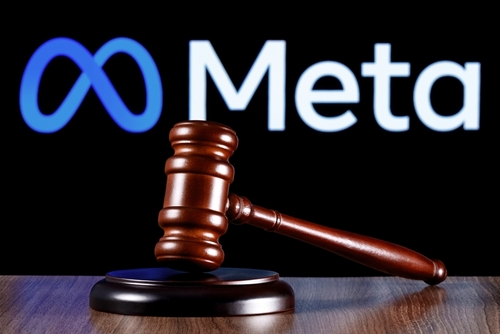Sex-trafficking victims can sue Facebook for allegedly facilitating their recruitment, top Texas court says

Image from Shutterstock.
A federal law protecting websites that publish third-party content doesn’t insulate Facebook from sex-trafficking lawsuits that are based on a state statute, the Texas Supreme Court has ruled.
In a June 25 opinion, the state supreme court allowed the statutory claim by three Houston women who alleged that their abusers recruited them as teenagers through Facebook. The Texas law creates a civil cause of action for intentionally or knowingly benefiting from participation in sex trafficking.
The court dismissed other claims for negligence and products liability, however, that were based on an alleged failure to warn about sex trafficking or to take measures to prevent it on its platforms. Those claims had to be dismissed because of the protections in Section 230 of the Communications Decency Act, the state supreme court said.
But the court said the federal law doesn’t bar the statutory claim because the three lawsuits allege “overt acts by Facebook encouraging the use of its platforms for sex trafficking.”
“We do not understand Section 230 to ‘create a lawless no-man’s-land on the internet’ in which states are powerless to impose liability on websites that knowingly or intentionally participate in the evil of online human trafficking,” the state supreme court said.
Two plaintiffs were age 14, and a third was age 15 when they were contacted by users of Facebook and Instagram, which is owned by Facebook. The men who contacted them, who were “well over” age 18, flattered the girls and made false promises of a better life, the suits said. The men eventually used Instagram and Backpage.com to advertise the girls as prostitutes.
The suits alleged that Facebook created “a breeding ground” for sex traffickers, earned advertising revenue by extending its user base to include sex traffickers, increased profits by not using its advertising space for announcements warning of the dangers, and increased profit margins by failing to implement safeguards regarding verification of user identities.
The court noted that the Fight Online Sex Trafficking Act, passed in 2018, amended Section 230 to allow civil liability when websites violate federal human-trafficking laws.
Facebook and the women had all argued that the statute supported their positions in the case. The court sided with the plaintiffs, who argued that the Fight Online Sex Trafficking Act was a rule of construction that the Communications Decency Act never barred civil trafficking claims based on state and federal statutes.
Law.com, Law360 and the Houston Chronicle have coverage of the 6-0 decision; a press release is here.
Facebook said in a statement it is reviewing the decision.
“Sex trafficking is abhorrent and not allowed on Facebook,” said the statement, issued to Law.com, Law360 and the Houston Chronicle. “We will continue our fight against the spread of this content and the predators who engage in it.”



